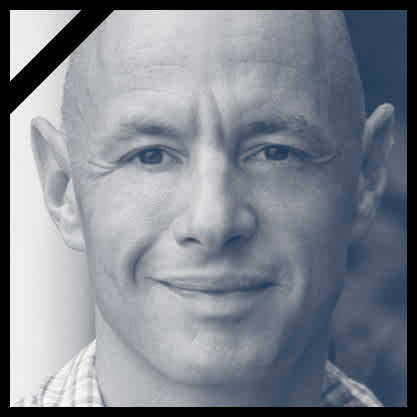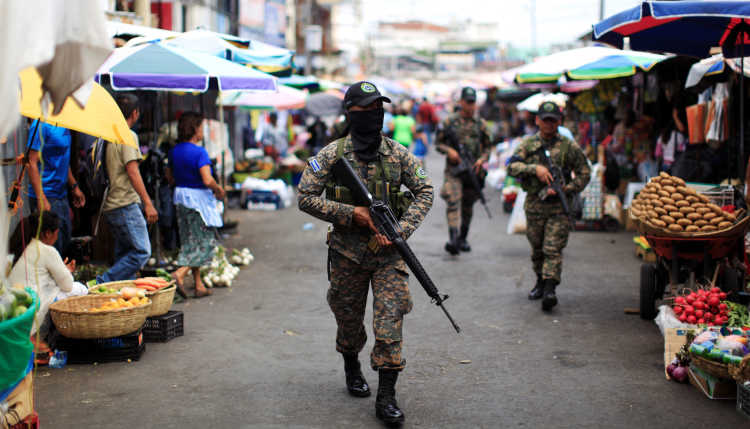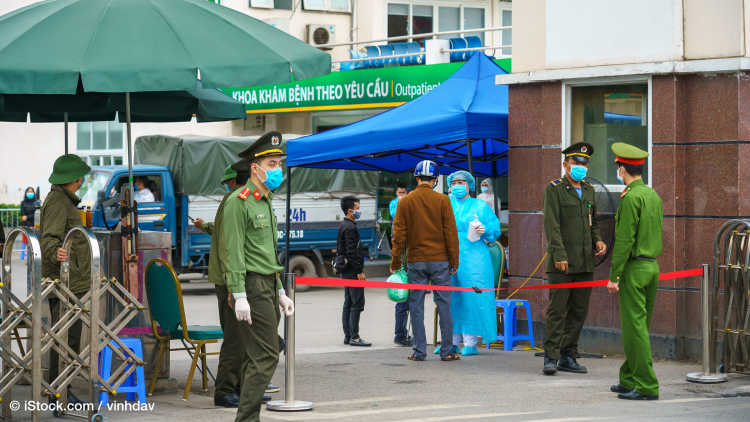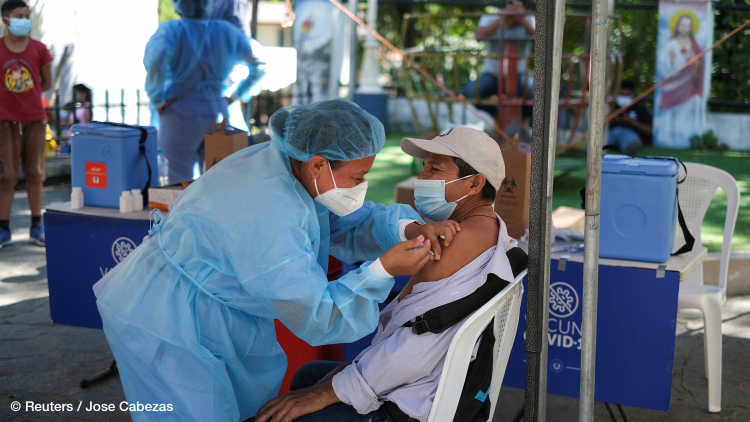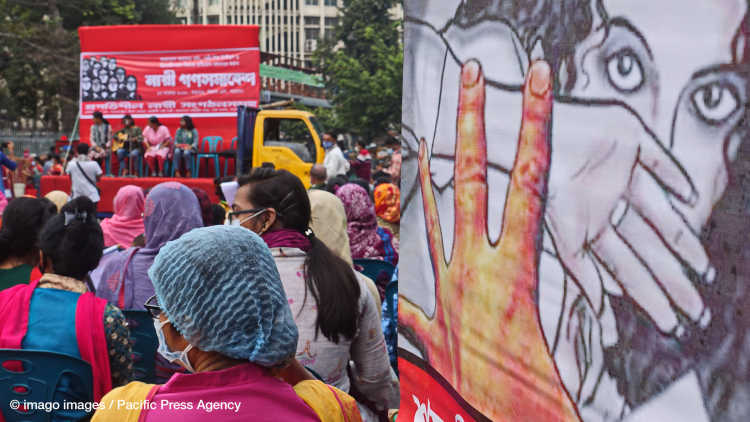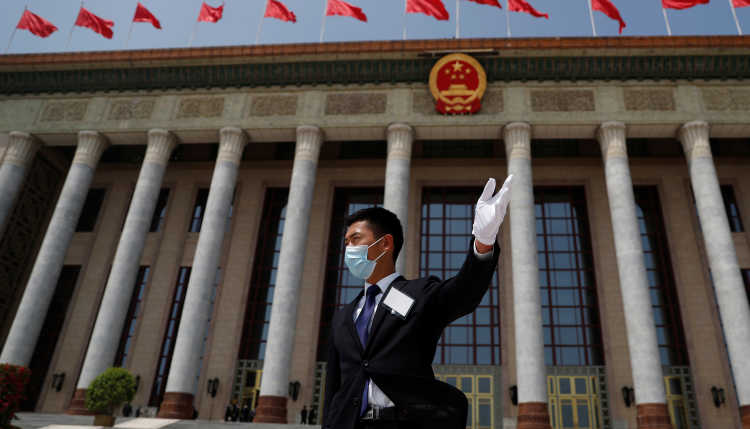- Startseite
- Publikationen
- GIGA Focus
- Assessing the Political and Social Impact of the COVID-19 Crisis in Latin America
GIGA Focus Lateinamerika
Die politischen und sozialen Folgen der Corona-Krise in Lateinamerika
Nummer 3 | 2020 | ISSN: 1862-3573

Die COVID-Pandemie stellt die Gesellschaften des ungleichsten Kontinents der Welt auf die Probe. Viele Menschen in Lateinamerika sind von informeller Arbeit abhängig, um ihren Lebensunterhalt zu bestreiten. Maßnahmen zur physischen Distanzierung müssen daher unmittelbar durch soziale Hilfsprogramme abgefedert werden. Die Krise stellt auch die politische Führung auf die Probe. In einem Kontinent, in dem das Vertrauen in formelle Institutionen ohnehin gering ist, erweisen sich einige Präsidenten als starke, die verschiedenen Kräfte im Land vereinigenden Politiker, während andere straucheln.
Entschlossenes Regierungshandeln erweist sich für die Umsetzung weitreichender Sperrmaßnahmen und deren soziale Abfederung als entscheidend. Die Präsidenten Argentiniens und Perus stechen als Beispiele für eine schnelle und koordinierte Reaktion hervor.
Der mögliche Missbrauch erweiterter Macht der Exekutive erregt zumindest mittelfristig Besorgnis. In Chile und Bolivien mussten die Regierungen, die nach den massiven Protesten des letzten Jahres über begrenzte Legitimität verfügen, die Abstimmung über den Verfassungskonvent (Chile) und die Präsidentschaftswahlen (Bolivien) verschieben.
Viele Regierungen haben rasche soziale Unterstützung zugesagt. Chile hat ein enormes wirtschaftliches Rettungspaket aufgelegt, bei dem jedoch die Knausrigkeit gerade gegenüber den Schwächsten ins Auge sticht.
Wo populistische Präsidenten von rechts (Brasilien) oder links (Mexiko) den Ernst der Pandemie leugnen, versuchen Politiker auf subnationaler oder lokaler Ebene, das Führungsvakuum zu füllen. Die effektive Umsetzung der Politik wird dadurch jedoch beeinträchtigt. Den höchsten Preis hierfür werden die sozial verletzlichsten Gruppen der Gesellschaft zahlen.
Lateinamerika wird auch nach der akuten Krise unter den externen Wirtschaftsschocks leiden. Während von den USA und Europa nur wenig Hilfe kommt, avanciert China zum Hoffnungsträger für die Lieferung von Gesichtsmasken, Testkits und Schutzausrüstungen.
Fazit
Mit der Ausbreitung von COVID – bei höheren oder flacheren Kurven – werden Lateinamerikas Gesundheitssysteme Schwierigkeiten haben, die schwer Betroffenen zu behandeln. Kontakt- und Ausgangssperren werden in unterschiedlichem Maß respektiert werden – auch abhängig davon, ob die Versprechen sozialer Nothilfe sofort eingelöst werden. Wo die Exekutive die Krise für engstirnige politische Gewinne zu nutzen sucht, sind heftige politische Konflikte wahrscheinlich. Multilaterale Unterstützungsprogramme sind deshalb notwendig, um eine soziale Mindestsicherung für gefährdete Haushalte zu garantieren.
The COVID-19 pandemic is testing the socio-economic fabric and political leadership of all Latin American countries. In the world’s most unequal region, many of the poor depend on informal work for their daily livelihood. The social-distancing measures that are necessary to fight the virus directly affect the economic livelihoods of about half the region’s population who work in the informal sector in services and petty commerce, and who do not have assets or savings to carry them through the crisis. All this makes immediate social assistance measures imperative.
Unfortunately, the list of risks is more extensive than that. In times of crisis, executive authorities occupy the central stage, people’s expectations for decisive government action increase, and there is higher tolerance for power concentration and constraints on people’s rights. This is especially the case with the current public health emergency that requires strong measures to limit social interaction in order to decelerate the spread of the virus. In the presidential democracies of Latin America, with a past of strong authoritarian leaders and a present of strong elected executives, the pressure for executive action is as great as the dread of its effect. Presidential actions around the coronavirus crisis are being questioned – and feared –, but the lack of responsible presidential leadership when it is most needed has also proven problematic.
This is the enormous political challenge that governments face. At the same time, however, the effectiveness of the social-distancing measures will in large part depend on whether the government ensures basic subsistence to the vulnerable so that they can stay inside and not spread the disease. This is the enormous social challenge that Latin American leaders and societies face. We discuss both in turn, and then reflect on the economic and geopolitical implications of the crisis beyond the immediate health emergency unfolding.
A Test of Leadership
On the one hand, the mobilisation of the state’s repressive apparatus raises serious concerns. Where the state has historically shown a weak capacity to guarantee health and sanitary conditions that are fair to everyone, it has instead been less hesitant to mobilise the police and military in the name of order and security. As the coronavirus progresses, countries have implemented increasingly restrictive measures on the movement and assembly of people. The imposition of curfews – such as in Chile, the Dominican Republic, Ecuador, Guatemala, and Honduras – and other constraining measures that force people to quarantine – such as in Argentina, Bolivia, Colombia, El Salvador, and Uruguay – are justified by the need to curve the spread of the contagious disease. However, they also raise concerns about the abuse of extraordinary powers for narrow political motives, or for their perpetuation over time beyond the current health crisis.
The severity of the measures taken by Latin American governments is also a response to the long tradition of low rule compliance. For example, in Bolivia interim president Jeanine Áñez, after postponing pending elections, declared a health emergency on March 26 in response to what she considered unacceptably low compliance with the quarantine requirements, allowing for military involvement and prison sentences of up to 10 years for infractors. But Áñez’s judicial persecution of supporters of the toppled government make those in the opposition wary of how she will use the state of emergency. Involving the police and especially the military in enforcement measures such as street patrols may have long term costs for democracy, as it builds on the already-existing warning signs of increasing military presence in the continent’s both public and political life (Scharpf 2020; for keeping track of the evolving state of emergency decrees in Latin America and globally, see: www.icnl.org/covid19tracker).
Add to this the fallout from last year’s political instability. Bolivia and Chile are cases in point here. In the first, massive protests exploded last fall, which eventually toppled the government of left-wing Evo Morales, the institution of the above-mentioned interim right-wing government, and an all-party agreement for new elections this May. In Chile, meanwhile, massive street protests against President Sebastián Piñera resulted in a vote for convening a new constitution, planned for this April. In both cases, the pandemic now requires these votes to be postponed. While in Chile there was vast support for the measures taken (Castiglioni 2020) and a new date has been fixed for next October, in Bolivia the tenuous constitutionality of the current government and indefinite postponement send an ambiguous message. However, it should be noted that Morales and his party have endorsed the postponement.
In Venezuela, the Nicolás Maduro government grounded flights and sent the country into lockdown early on. The desperate economic situation and deteriorated healthcare system leave the country ill-prepared to face the crisis, and the collapse of the world-market price for oil only adds to the bleak perspective for Venezuela. The opposition leader Juan Guaidó –recognised by many Western governments as Venezuela’s rightful president – has called for an “emergency government” formed of both opposition and (unspecified) members of the governing party, but excluding Maduro. However, given that the U.S. Department of Justice indicted President Maduro and other Venezuelan officials on narco-terrorism conspiracy charges on March 29, a negotiated solution seems unlikely. Rather, the Maduro government may dig trenches deeper – even if this means exacerbating the country’s humanitarian crisis.
All across Latin America, civic activists and law scholars have vocally warned society that governments should be transparent in sharing information on the extent of the crisis, civil society groups should be consulted on the adequacy of measures before implementation, and restrictions should be lifted as soon as threats posed by the virus diminish (Gargarella 2020). That said, tough protective measures are popular when combined with perceived honesty and integrity – with people looking for strong leadership in times of crisis. Both President Alberto Fernández of Argentina and President Martín Vizcarra of Peru have emerged as regional exemplars in communicating transparently and decisively. Fernández first gathered medical advice and then summoned the support of political opponents. As Argentina responded to the crisis quickly and bluntly, the president’s attitude was regarded as reasonable and responsible. Opinion polls in Peru showed overwhelming support for President Vizcarra’s handling of the crisis, including some 96 per cent approval of the curfew and 95 per cent support for the national quarantine (La República 2020). Perhaps his decidedly non-populist path to the presidency – an engineer by training, he assumed the reins of government when the previous president was impeached – has something to do with this.
The charismatic president of El Salvador, Nayib Bukele, has also gained respect by getting in front of the pandemic; he early on announced a comprehensive emergency plan to address COVID-19. In a country racked with high levels of violence, corruption, and a weak economy, he not only decreed a complete quarantine for one month but also put forwards an ambitious plan of social assistance to the majority of Salvadorans who work in the informal sector.
On the other hand, the lack of decisive leadership in times of crisis can do great harm. The presidents of the two most populous countries in the region, right-wing Jair Bolsonaro of Brazil and left-wing Andrés Manuel López Obrador – AMLO for short – of Mexico, responded in the same way that they have governed: namely, with populist platitudes (AMLO from the left; Bolsonaro from the right), and by denying and ignoring inconvenient evidence. In the days prior to March 27, when AMLO belatedly heeded the advice of Mexican health and scientific organisations and members of his government and so finally recommended people stay home, he showcased a religious amulet when asked how he protects himself against the virus; like Bolsonaro, he also shared videos on social media showing his continued hugging and kissing of supporters.
Denialist strategies, likely driven by the desire to avoid blame for the economic ramifications of lockdowns, have been costly for these two leaders in terms of both popular and institutional support. Bolsonaro compared COVID-19 to a little cold and stated that the remedy should not be worse than the illness. He has repeatedly criticised the closure of schools and shops as part of the fight against the pandemic, lashing out at the press, the opposition, and local authorities. The president, who is known for his disrespect for both democratic institutions and scientific knowledge as well as for his extreme-right ideology, has included religious gatherings as part of the services regarded as essential in a decree regulating social-distancing measures in Brazil. His chaotic governance style (for example, issuing an executive decree only to revoke it less than a day later amid social media criticism) has drained the government of the little legitimacy it had, and mobilised the opposition to act in unison to confront the seriousness of the pandemic.
This political gamble is a high-stakes one for Bolsonaro, whose popularity is eroding particularly among his traditional support base: namely, the richest and most educated (Gielow 2020). In a matter of days, opposition politicians, prominent economists, and the leaders of 150 civil society organisations came together and managed to get a basic income bill unanimously approved in Congress, soundly defeating the government’s own proposal. The bill now awaits sanction by the president. Bolsonaro’s bluster has also led to an implicit transfer of power to subnational and local authorities for the implementation of urgent, anti-crisis measures. The president, who was already on bad terms with Congress and the Supreme Court, is now openly contradicted by several of his ministers and the military members of his government. He has even lost the support of governors, one after the other.
In Mexico, AMLO remains more popular – although he is gradually slipping as well (Expansión Política 2020). To date, and perhaps because of his charismatic personality and stronger political backing in the states of the federation (his party has a majority in almost two-thirds of state-level congresses), the incoherent response has not created the same political backlash among governors as it has in Brazil.
Avoiding Immediate Humanitarian Crises
Strong leadership regarding quarantine measures will fast become meaningless if it is not accompanied by comprehensive social-assistance packages. With the immediate and still-to-come economic effects, close to half the population in the region is facing an impending humanitarian crisis.
While the population most vulnerable to COVID-19 from a medical point of view are the elderly, socially a large part of the most vulnerable are children and women (especially young families with children). Many countries in Europe can confront at least parts of the economic disruption through their welfare states, especially unemployment insurance, formal paid leave and sickness leave, as well as universal or almost-universal child allowances and pension coverage. This is not the case in Latin America, where most of the population lack social security coverage or other forms of income protection. Both Levy Yeyati and Malamud (2020) and Hausmann (2020) have recently noted that the “European model” to confront the crisis, with large-scale lockdowns, has huge human costs in countries with high informality and poverty. Almost half of Latin America’s economically active population gain their living in the informal sector, and much of this employment is concentrated in areas coming to a complete halt with the pandemic. In more than two-thirds of Latin American countries, more than two-thirds of children on average live in households without access to social security. Class stratification is strong: only one in ten individuals in the lowest income quintile – that is, those who would most need it – has access to social security compared to seven in ten in the highest income quintile (Blofield and Filgueira 2020).
Given this, the extension of non-contributory cash transfers to households with children in the last 15 years has become a lifeline for low-income families. By 2016, 30 cash transfer programmes had reached a total of 130 million people – about 20 per cent of the population in the region (Cecchini and Atuesta 2017). Importantly, most received these transfers through non-discretionary administrative mechanisms. Moreover, almost all Latin American households have gained access to electricity, drinking water, and cell phones over the last 15 years, and now depend on these services (ECLAC 2018). This existing infrastructure can now be mobilised to confront the social crisis, to put in place basic-income guarantees and to ensure continued access to basic utilities.
In a region where historically the vulnerable come last, this challenge is as much a political one as a technical one. Governments can use their existing contributory and non-contributory social security programmes to extend immediate financial assistance. However, there is a third group – the informal and self-employed workers who have not in the past qualified or registered for government programmes, and their families – that must now be reached. It is worth noting that ensuring basic social-assistance coverage is actually quite cheap. Fernando Filgueira, a social policy expert, estimates the fiscal cost of guaranteeing each child in a vulnerable household an income up to the poverty line for three months (one estimate of the duration of the COVID-19 crisis): it amounts to less than 0.5 per cent of gross domestic product in most countries and less than 1 per cent in all but three out of 17 countries (Blofield and Filgueira 2020).
We see clear differences in social assistance as well. Executive decrees in Argentina and Peru have released immediate social-assistance packages to vulnerable households, both those already registered in government programmes and those that rely on income from the informal sector. In Argentina, the cash transfer is equivalent to 70 per cent of the national urban per capita poverty line in 2018; in Peru, to 115 per cent of its own such line. In both cases, such transfers will prevent destitution for the next month; the challenge will be to reach all those who need them (Blofield and Filgueira 2020).
The Salvadoran president’s promises are perhaps the most ambitious. Along with the suspension of payments for three months for water, electricity, and the Internet, and a moratorium on rent and other monthly payments, Bukele has promised a cash transfer of USD 300 to 1.5 million Salvadorans (in a country of nine million people). The government site to register opened up on March 28 and collapsed immediately afterwards, because, according to the president, it received five million hits in the first five minutes.
In Mexico, in contrast, AMLO has yet to propose basic-income guarantees as he has only recently come to terms with the magnitude of the pandemic. His executive decree allowing those in the formal sector over 65 or with a set of health conditions to be absent from work reaches a minimal share of the population, and his anti-poverty strategy until last Friday (March 27) was to exhort all able-bodied individuals to continue to work. It may be that he will propose something in the coming days; however, his gutting of the public sector in the name of his anti-corruption initiative, alongside a politically motivated overhaul of the existing social assistance programmes over the past year, make it uncertain as to how effective and efficient the delivery of such assistance will be.
In Brazil, Bolsonaro may have overplayed his hand. The opposition unified in response to government inaction, and sponsored an ambitious bill to provide a basic minimum income to close to half of the population. The bill provides a cash transfer that is equivalent to the 2018 urban per capita poverty level, and allows for it to be doubled for households with children (Blofield and Filgueira 2020).
What stands out is the stinginess of South America’s richest country, Chile. A massive government economic rescue plan, representing 4.7 per cent of the country’s GDP, had little to directly offer the most vulnerable. In an already highly privatised system where employees (rather than employers) bear the brunt of social security payments, the opposition objected to the government’s anaemic assistance plans for vulnerable households. While the opposition managed to increase the initial amount and to ensure coverage for the bottom 60 per cent of the population, the subsidy is still equivalent to just 34 per cent of the 2018 national urban per capita poverty line and 76 per cent of the per capita extreme poverty line (Blofield and Filgueira 2020). President Piñera’s rock-bottom legitimacy following the massive social protests last October is now at 20 per cent, with the government acting just as its critics claim it does: with stunning tone-deafness to the needs of the majority, in a country that proudly joined the club of the Organisation for Economic Co-operation and Development recently and with one of the highest wealth concentrations in the world.
Even Bolivia, South America’s poorest country, has stepped up more. In a bid to keep people off the streets in a country where 80 per cent of the economically active population works in the informal sector for subsistence wages, the government promised a transfer equivalent to 60 perc ent of its 2018 urban per capita poverty line to Bolivia’s 2.2 million public-school children. It also promised emergency food baskets to 1.6 million families (in a country of 11.5 million people) (Blofield and Filgueira 2020).
In Colombia, the right-wing government has also moved to ensure emergency social assistance as it implements increasingly stringent social-distancing measures. It has promised aid to recipients of government programmes as well as families in the informal sector. One group that has to date been left out in the cold are the over 1.6 million Venezuelan refugees in the country, the vast majority of whom are in the informal sector (Pardo 2020). The government rightfully claims that more international assistance is needed, but knowing where to place blame may be little comfort for refugees who cannot feed their families.
The Looming Post-COVID-19 Economic Crisis
Beyond the disruptions from its own lockdown measures, Latin America will suffer from external shocks. Demand for commodities will remain low, as long as the industrialised countries of the Global North remain in crisis mode. Oil exporting states such as Venezuela, Colombia, Ecuador, and Mexico, exporters of minerals such as Chile (copper) or of agricultural goods (think of Brazil’s soya) will see prices remain low as long as global demand is down.
Moreover, migrant remittances – vital for Mexico and many Central American and Caribbean countries – can be expected to decline sharply as the crisis hits sending countries. International tourism, a central pillar of many economies, has collapsed and will take time to recover. In addition, the crisis has seen a massive capital flight from emerging markets and a depreciation of currencies in many countries. In the first month after the outbreak of the COVID-19 virus alone, Brazil suffered capital outflows worth USD 11,730 million (equivalent to the GDP of a country like Nicaragua); within a month the Real had lost 20 per cent on the US dollar.
So much, of course, depends on a return to economic growth. As elsewhere, the extent of the economic impact will depend on the duration of the – domestic and global – quarantine measures, making all forecasts “guesstimates” at best. The glimmer of hope is China, as the Asian superpower is leaving the lockdown phase and hopes to return soon to economic growth – crucial to cushioning the fall in global demand for Latin America’s exports.
Where Help Is Coming From: The Shift in Global Geopolitics
Indeed, in Latin America’s COVID-19 health emergency, the traditional “donor countries” in North America and Europe are likely to be of less help. By contrast, China has become a key actor in the region’s fight against the pandemic (notwithstanding the fact that Bolsonaro, in line with Donald Trump’s rhetoric, seeks to label COVID-19 “the Chinese virus”).
In fact, China has used the crisis to give an impressive display of its soft-power capacities as it sends face masks and test kits, protective medical gear, and ventilators to Latin America (and to Africa as well as other world regions). While the political gains Beijing seeks from this are evident, the aid China provides is magnified by the contrast with the absence of such practical help from the US and Europe – both themselves currently in great need of these critical supplies. Even if seen as propaganda tools, in current circumstances they are highly welcomed by receiving countries. As a result, China is not only Latin America’s best hope to revive demand for exports but its medical help in these times of acute need will not fail to boost its public image across the continent.
The one Latin American country that is also engaged in foreign medical missions to fight the COVID-19 crisis, even if on a very different scale, is Cuba. The photos of the Cuban doctor brigade arriving in wealthy northern Italy forcefully contradict the usual perspective of North–South aid. For a long time, “medical internationalism” has been part of Cuba’s foreign policy and regime legitimacy (Hoffmann 2015). In the past two decades, it also evolved into a key revenue stream for the socialist state. Large contingents of Cuban medical personnel were deployed to Venezuela, Brazil, and Ecuador (the latter two cancelled after their left-wing governments lost power). At the height of the projects, more than 50,000 healthcare workers from Cuba were working in 66 countries around the world.
The direct precedent of Havana’s anti-COVID-19 brigades is the mission sent to fight the Ebola epidemic in Africa in 2014. Under the auspices of the World Health Organization (WHO), a group of 256 Cuban doctors, nurses, and other health professionals was rapidly mobilised to provide “front-line” care in Sierra Leone, Liberia, and Equatorial Guinea. As today the COVID-19 virus is threatening to overrun national health systems all over the world, Cuba’s medical missions are in high demand. Aside from the iconic brigade sent to Lombardy, Cuban medical personnel have also been sent to Angola and a dozen Caribbean states – from Suriname to the small islands of the West Indies. More destinations are likely to follow, and the WHO will probably seek again Cuban assistance to fight the pandemic on the African continent as well.
Notwithstanding Cuba’s assistance to other countries, the COVID-19 pandemic has also put its own domestic health system to a severe test. After many years of crisis, the quality of Cuban hospital care is no longer what it used to be. Doctors are extremely low-paid (one reason why the much better paid work on missions abroad is so attractive), many medical materials are in short supply or cannot be come by, and sanitary conditions have become precarious for broad segments of the population – with chronic deficiencies in the supply of tap water or body soap.
The biggest challenge, however, stems from demography. Cuba has, together with Uruguay, the oldest population on the continent so that a full one-quarter of the population needs to be considered among the at-risk group. As the virus has started to spread exponentially, Cuba’s acclaimed healthcare system will face its most crucial test to date. Should the pandemic get out of control, it would take a high human toll. Also politically the stakes are high for the Cuban government, as the public health sector is the pride of the Revolution’s social achievements.
For Cuba, this concrete aid in a humanitarian emergency represents an enormous reputational gain in a moment where the Trump administration has stepped up its aggressive rhetoric aimed at isolating the Havana government. The medical missions will also provide the hard-currency earnings more desperately needed than ever. Over the past two years, Cuba’s economic situation has become more and more precarious. Now an even more profound economic crisis looms large, as Cuba – just as with other Caribbean countries – will face a disastrous tourism season and a sharp drop in remittances. The state’s reaction has been towards centralising economic decision-making and stepping up the rationing system. Whatever revenues the medical missions to fight COVID-19 might generate, they will fall short of preventing Cuba from heading towards a profound economic crisis that has now already revived memories of the dramatic post-Soviet crisis years of the 1990s.
Looking To the Future: A Role for Europe?
In the next few weeks, government capacity will be tested in Latin America – as lockdowns are differentially respected and enforced, and with promises of emergency social assistance needing to materialise in bank accounts, in cash transfers, and in food baskets. The epidemiological spread of COVID-19 will take place – with higher or with flatter curves – and health systems across the region will struggle to treat the severely affected. The different bets made by the “decisive actors” such as Fernández in Argentina and Vizcarra in Peru, versus the “denialist” strategies of Bolsonaro in Brazil and AMLO in Mexico, will play out. Miscalculations will invariably be made, given the unprecedented and unfamiliar terrain we are dealing with. However, for leaders who use this moment to seek cooperation and unity across government and opposition, and with subnational entities, the blame game is likely to be much more limited. Although so much remains unforeseeable, such governments could emerge from the crisis politically strengthened.
In international politics, while the US government is unable (and unwilling) to provide aid to the countries of the continent, in the wake of the COVID-19 crisis China is acquiring a more prominent public role in Latin America. These global geopolitical shifts are leaving Europe in an uncomfortable position, as it is absorbed by its own fight against the spread of the pandemic. Recent efforts to reach out to the region, such as Germany’s launch of a new Latin America and Caribbean Initiative last year, need to be continued despite the impending economic troubles and domestic woes. Aside from economic cooperation with robust social welfare institutions, Germany could collaborate with the social-assistance programmes that Latin American governments are setting up to guarantee basic incomes to the most vulnerable. Once the peak of the acute health emergency is overcome, Europe and Latin America will need strong multilateral initiatives to revive their ties in a world that has seen an unprecedented breakdown of global trade, travel, and coordination.
Fußnoten
References
Blofield, Merike, and Fernando Filgueira (2020), COVID19 and Latin America: Social Impact and Social Policies, 2 April, Buenos Aires: Centro de Implementación de Políticas Públicas para la Equidad y el Crecimiento (CIPPEC).
Castiglioni, Rossana (2020), La Batalla de Chile contra el covid-19, in: El País, 25 March, http://agendapublica.elpais.com/la-batalla-de-chile-contra-el-covid-19/ ?fbclid=IwAR07WHekH1KqLoeM01rlUm7-EmAmVi-t0GiVcsKqUY-h_EoSAj 9VATwd-XA (31 March 2020).
Cecchini, Simone, and Bernardo Atuesta (2017), Conditional Cash Transfer Programmes in Latin America and the Caribbean: Coverage and Investment Trends, 15 September, https://ssrn.com/abstract=3037640 (31 March 2020).
ECLAC (Economic Commission for Latin America and the Caribbean) (2018), Social Panorama of Latin America, Santiago, Chile: ECLAC.
Expansión Política (2020), El coronavirus "tira" la aprobación de AMLO, según encuestas, in: Expansión Política, 26 March, https://politica.expansion.mx/mexico/2020/03/26/el-coronavirus-tira-la-aprobacion-de-amlo-segun-encuestas (31 March 2020).
Gargarella, Roberto (2020), Frente al coronavirus, ¿es necesario restringir las libertades compulsivamente?, in: Clarin, 24 March.
Gielow, Igor (2020), Avaliação de Bolsonaro na gestão da crise é muito pior que a de governadores e ministério, diz Datafolha, in: Folha de São Paulo, 23 March, www1.folha.uol.com.br/poder/2020/03/avaliacao-de-bolsonaro-na-gestao-da-crise-e-muito-pior-que-a-de-governadores-e-ministerio-diz-datafolha.shtml (31 March 2020).
Hausmann, Ricardo (2020), Flattening the COVID-19 Curve in Developing Countries, Project Syndicate, 24 March, www.weforum.org/agenda/2020/03/flatten ing-the-covid-19-curve-in-developing-countries/ (31 March 2020).
Hoffmann, Bert (2015), The International Dimension of Authoritarian Regime Legitimation: Insights from the Cuban Case, in: Journal of International Relations and Development, 18, 556–574.
La República (2020), Martín Vizcarra cumple 57 años con una aprobación de 87%, 22 March, https://larepublica.pe/politica/2020/03/22/martin-vizcarra-87-de-peruanos-aprueban-al-presidente-del-peru-segun-encuesta-ipsos/ (31 March 2020).
Levy Yeyati, Eduardo, and Andrés Malamud (2020), Coronavirus: ¿Cómo y cuándo salir de la cuarentena?, in: La Nación, 29 March, www.lanacion.com.ar/politica/coronavirus-como-cuando-salir-cuarentena-nid2348631 (31 March 2020).
Pardo, Daniel (2020), “Vamos a terminar en la calle y con hambre”: cómo cambió la vida de los migrantes venezolanos en Colombia por la pandemia, in: BBC Mundo, 25 March, www.bbc.com/mundo/noticias-america-latina-52029659 (31 March 2020).
Scharpf, Adam (2020), Dangerous Alliances: Populists and the Military, GIGA Focus Latin America, 1, February, www.giga-hamburg.de/en/publication/danger ous-alliances-populists-and-the-military 1 March 2020).
Gesamtredaktion GIGA Focus
Redaktion GIGA Focus Lateinamerika
Lektorat GIGA Focus Lateinamerika
Regionalinstitute
Forschungsschwerpunkte
Wie man diesen Artikel zitiert
Blofield, Merike, Bert Hoffmann, und Mariana Llanos (2020), Die politischen und sozialen Folgen der Corona-Krise in Lateinamerika, GIGA Focus Lateinamerika, 3, Hamburg: German Institute for Global and Area Studies (GIGA), https://nbn-resolving.org/urn:nbn:de:0168-ssoar-67260-7
Impressum
Der GIGA Focus ist eine Open-Access-Publikation. Sie kann kostenfrei im Internet gelesen und heruntergeladen werden unter www.giga-hamburg.de/de/publikationen/giga-focus und darf gemäß den Bedingungen der Creative-Commons-Lizenz Attribution-No Derivative Works 3.0 frei vervielfältigt, verbreitet und öffentlich zugänglich gemacht werden. Dies umfasst insbesondere: korrekte Angabe der Erstveröffentlichung als GIGA Focus, keine Bearbeitung oder Kürzung.
Das German Institute for Global and Area Studies (GIGA) – Leibniz-Institut für Globale und Regionale Studien in Hamburg gibt Focus-Reihen zu Afrika, Asien, Lateinamerika, Nahost und zu globalen Fragen heraus. Der GIGA Focus wird vom GIGA redaktionell gestaltet. Die vertretenen Auffassungen stellen die der Autorinnen und Autoren und nicht unbedingt die des Instituts dar. Die Verfassenden sind für den Inhalt ihrer Beiträge verantwortlich. Irrtümer und Auslassungen bleiben vorbehalten. Das GIGA und die Autorinnen und Autoren haften nicht für Richtigkeit und Vollständigkeit oder für Konsequenzen, die sich aus der Nutzung der bereitgestellten Informationen ergeben.

















